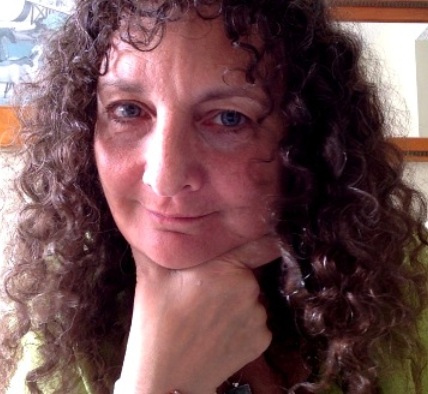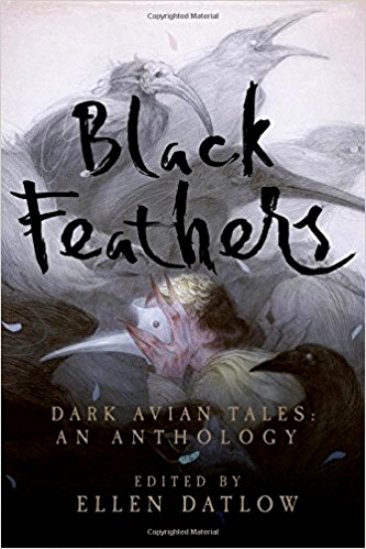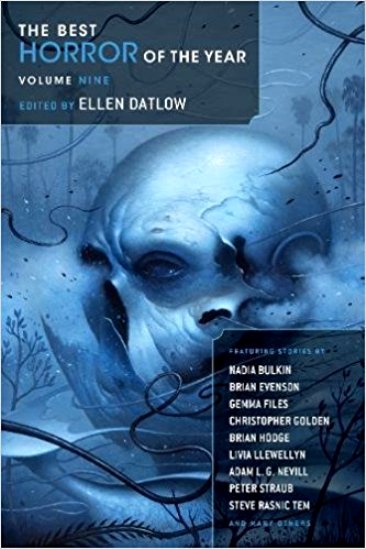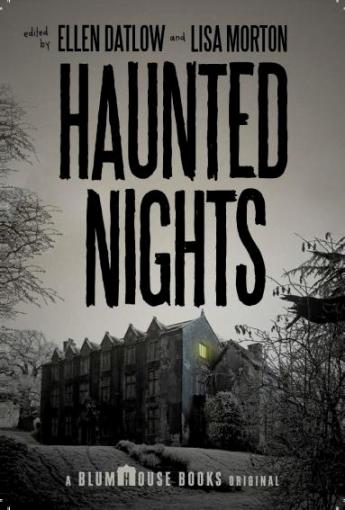

HUGO AWARD WINNER 2016
Ellen Datlow, Best Editor, Short Form
Award-winning Editor Ellen Datlow gives advice for witers
...and advice for the Editor of The Horror Zine
IN THE "SPECIAL PAGE" ARCHIVES:
Simon Clark
John Gilmore
Brent Monahan
Owen King
Dacre Stoker
Piers Anthony
INTERVIEW WITH ELLEN DATLOW
Jeani: Welcome to The Horror Zine, Ellen. I have admired you for years. I understand that you were the fiction editor of Omni Magazine, which was published in print form from 1978 through 1995, and online until 1998. Who were some of the most memorable names you published during the years you were there?
Ellen: Thank you. I published so many writers in OMNI over the years, but a random sample would have to include Jonathan Carroll, Ted Chiang, Gene Wolfe, Ursula LeGuin, Harlan Ellison, Nancy Kress, Carol Emshwiller, Connie Willis, Robert Silverberg, William Gibson, Stephen King, William Burroughs, Julio Cortazar, and Joyce Carol Oates.
Jeani: You have been the recipient of many awards, including the Shirley Jackson, Hugo, Stoker, and even the Lifetime Achievement award from the Horror Writers Association. Are you used to receiving awards, or does each one still feel unique and exciting?
Ellen: Being honored with an award is lovely and I never get tired of it. But lifetime achievement awards feel strange, because I don’t feel that I’ve been editing a “lifetime” yet.
Jeani: You have been very successful with editing and producing anthologies, and one of your best-known is The Best Horror of the Year series. Where do you seek fiction for this series, and how could an unknown writer get your attention?
Ellen: I read, or at least skim every anthology, single-author collection, genre and literary magazine, and webzine that might have dark fiction in it and that I can get hold of. If you write a terrific story and it’s published, unless it’s someplace pretty obscure, I’ll probably see it. If a writer isn’t sure that I receive a specific magazine or anthology, they need to ask their publisher to send it to me for consideration. It’s as simple as that.
Jeani: You have been quoted as saying, “I’ll approach writers whose work I admire and enjoy…” What specific things makes you “admire and enjoy” a short story?
Ellen: There are common elements to all great stories and if most of those elements come together I may end up really loving that story. If a story feels fresh in the way it’s told—even using a premise that when described sounds like a cliché—it can work beautifully. I might prefer certain types of storytelling to others (every reader and every editor has her biases) but if the right story comes along that smashes those biases, hallelujah.
Jeani: My readers are mostly writers themselves. Do you have any tips on what can set them apart from the pack? How does an unknown writer start the process?
Ellen: Hone your writing skills. If there’s a particular writer whose work you admire, see if you can figure out what it is about her work that attracts you. Is it the sentence by sentence writing, the plotting, the characters, the way the stories make you feel? I’m not a writing teacher and I’m not a writer so it’s difficult for me to prescribe. I can only explain my reactions to what I love reading. Although an engrossing story can carry me along, an engrossing story beautifully told envelopes me and transports me elsewhere. That’s what I want from fiction, whether novels or short stories. I want to be immersed in the experience, and in the world created by the writer for as long as my reading of the piece of fiction lasts.
Jeani: Do you find that the publishing industry has changed in this day of ebooks and print on demand? How do traditional publishers incorporate those changes?
Ellen: Those are just delivery systems. There’s nothing complicated about incorporating those things into your publishing model. Simultaneously publish print and ebook. All print on demand means is that you’re publishing the number of books for which you have specific advance orders.
Right now the anthology market seems weak. It’s become increasingly difficult to sell anthologies—both to the reader and because of that—to publishers. If books don’t sell it’s everyone’s problem—the publishers want to make money. I as an editor need to make money. The contributors should be earning money for their work.
In the past, this has been cyclical, so I’m hoping there will be an upswing soon.
Jeani: I would like to talk about women in horror fiction. Do you feel that women are under-represented in this genre? Do you feel you are setting an example for women by breaking the boundaries for success?
Ellen: Fewer women write horror fiction than men. That’s a fact—so sure, women are underrepresented in horror. The question is why? And I’m afraid have no answer to that. There are women who write excellent horror—in addition to writing science fiction and fantasy—so sometimes they’re not counted. eg: Elizabeth Hand, Kaaron Warren, Tanith Lee, Pat Cadigan, Kelly Link, and Elizabeth Bear.
I don’t feel my being a woman is relevant to my success or failure as a short story editor. Short story editors are (as I often say) an endangered species. I’d like to think I’m an example to male and female editors that we all should be getting paid for our work, just as writers are. I’m not a hobbyist, editing is my profession.
Jeani: You have always been an inspiration to me. How do you see your role as an editor? As one editor to another, do you have any advice for me?
Ellen: Thank you. I see myself having several major roles as an editor. My first role is to encourage fine writers to keep writing short stories, although writing them is usually a wash, economically. If I can get the best writers to continue writing short fiction against their own self-interest, I feel I’m successful.
My second role is to help the writer with whom I’m working to create the best story she can. That is, if I see potential in a specific submission I will encourage the writer to revise when necessary to get her to make it brilliant.
My third role is to publish stories that will snag the reader, and that readers will find as wonderful as I do. In other words, I’m a pusher of the stories I love.
My advice is two-fold: don’t be afraid to reject stories for an anthology or a magazine. Anything you work on should reflect your taste as an editor. You need to be able to reject stories by friends—that, and rejecting a story by a “big” name are the two hardest things for an editor to do.
Also, establishing your taste doesn’t mean that your taste stays the same forever. Predictability is not a good thing for an editor or a writer (except for being relied on to produce quality work). It’s important for editors to keep their ears and eyes open—to continually be aware of good, new writers. Not only so that you don’t become stale, but because when buying stories from a new writer, it’s only a matter of time until they move on to novels and no longer have time to write short fiction. Only writers who love the form will spend their time writing short fiction once they’ve got annual novel contracts to fulfill.
This interview was previously published in The Horror Zine in 2013.
About Ellen Datlow

Photo credit: Greg Frost
Ellen Datlow has been editing science fiction, fantasy, and horror short fiction for over thirty years. She currently acquires short fiction for Tor.com. In addition, she has edited more than fifty science fiction, fantasy, and horror anthologies, including the series The Best Horror of the Year, The Doll Collection, The Monstrous, Nightmares: A New Decade of Modern Horror, Children of Lovecraft, Black Feathers: Dark Avian Tales, and Haunted Nights (with Lisa Morton).
Forthcoming are Mad Hatters and March Hares (stories inspired by the works of Lewis Carroll), Devil and the Deep, and The Saga Anthology of Ghost Stories.
She's won multiple World Fantasy Awards, Locus Awards, Hugo Awards, Stoker Awards, International Horror Guild Awards, Shirley Jackson Awards, and the 2012 Il Posto Nero Black Spot Award for Excellence as Best Foreign Editor. Datlow was named recipient of the 2007 Karl Edward Wagner Award, given at the British Fantasy Convention for "outstanding contribution to the genre" was honored with the Life Achievement Award given by the Horror Writers Association, in acknowledgment of superior achievement over an entire career, and the Life Achievement Award by the World Fantasy Convention.
She lives in New York and co-hosts the monthly Fantastic Fiction Reading Series at KGB Bar. More information can be found at www.datlow.com, on Facebook, and on twitter as @EllenDatlow.
You can see her website HERE


